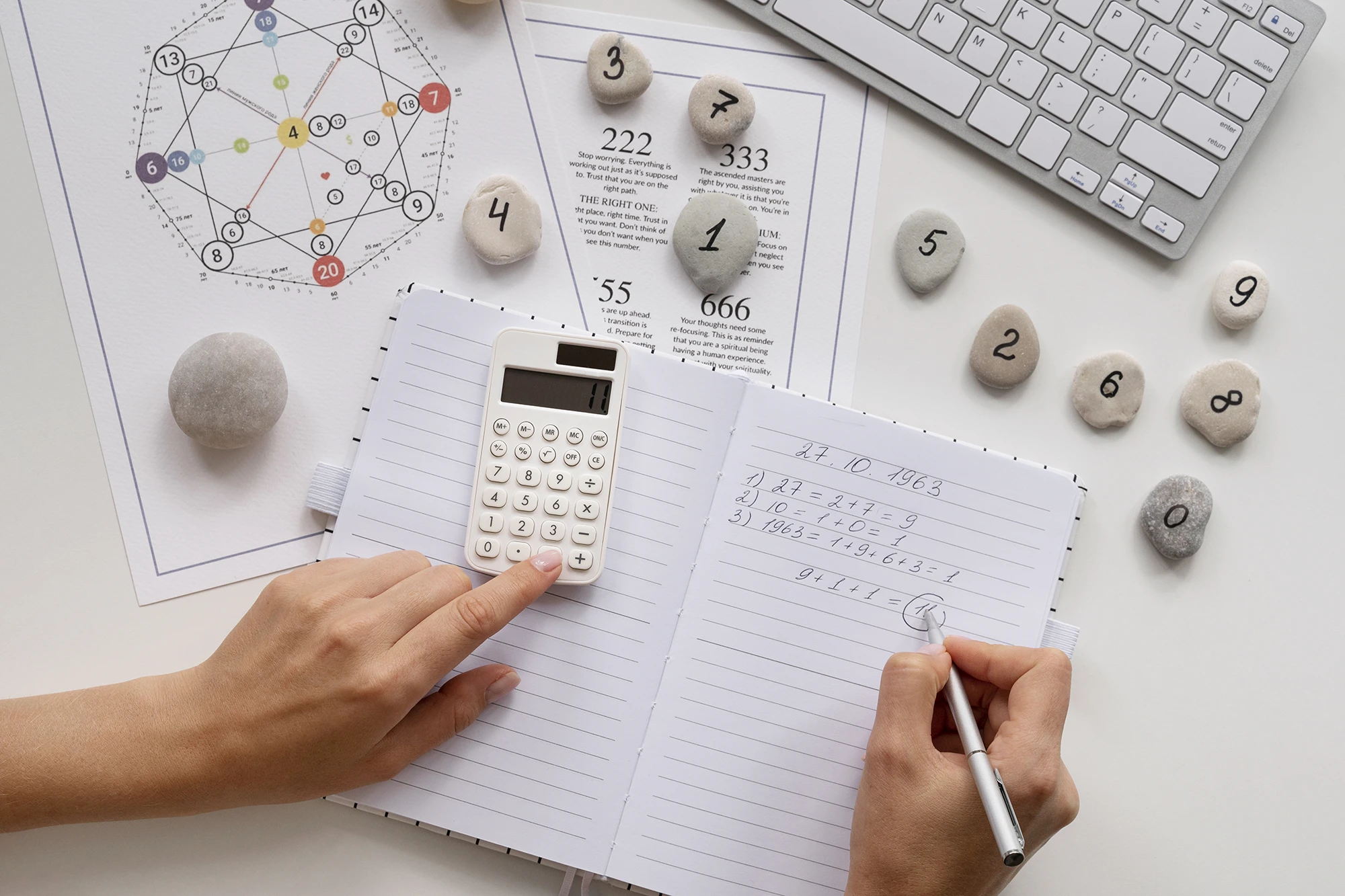Is Maths GCSE Important? Complete Guide to Understanding Its Role in Your Future

October 15, 2025 | 4 months | GCSE Fundamentals
In This Article:
 Summarise this article with ChatGPT | Perplexity | Claude | Google AI Mode | Grok
Summarise this article with ChatGPT | Perplexity | Claude | Google AI Mode | Grok
Yes, GCSE Maths is essential as it serves as a gateway qualification required by universities, employers, and training programs across virtually all sectors. This mandatory qualification demonstrates problem-solving abilities, logical thinking, and numerical competency that are increasingly valuable in our technology-driven world. Beyond academic requirements, GCSE Maths provides practical life skills for financial management and informed decision-making.
Academic and educational pathways:
University entry requirements: Most degree programs require GCSE Maths at grade 4 or above, regardless of subject area
A-Level prerequisites: Mathematics, sciences, economics, and psychology A-Levels typically demand grade 6+ in GCSE Maths
Vocational training: Apprenticeships and professional qualifications often specify GCSE Maths as a minimum entry requirement
Career and employment benefits:
Enhanced job prospects: Employers across all industries value mathematical competency for problem-solving roles
Higher earning potential: Strong mathematical qualifications consistently correlate with better-paid positions
Career flexibility: GCSE Maths keeps doors open to diverse career paths from finance to healthcare to technology
Essential life applications:
Financial literacy: Understanding mortgages, loans, budgeting, and investment decisions requires mathematical skills
Consumer awareness: Calculating discounts, comparing deals, and understanding statistical information in daily life
Critical thinking: Mathematical reasoning helps evaluate information and make evidence-based decisions
Whether you're a current student or an adult considering a return to education, understanding why GCSE Maths matters can significantly shape your future opportunities. This comprehensive guide explores the qualification's significance, addresses common challenges, and provides practical strategies for achieving success.
A Guaranteed Pass in Your Exams!
CloudLearn are the only UK Online Learning centre to guarantee a pass for our students.
Find out more
Why is GCSE Maths important for your future?
Understanding the significance of GCSE Maths goes far beyond simply passing an exam – it's about securing your future opportunities and building essential life skills. The qualification serves as a cornerstone for academic progression, career advancement, and practical everyday competencies that will benefit you throughout your life.
University entry requirements
Most universities require GCSE Maths at grade 4 (C) or above as a minimum entry requirement, regardless of your chosen degree subject. This makes “Is maths GCSE important?” a question with a resounding "yes" for anyone considering higher education. Even for creative subjects like art or music, universities expect students to demonstrate basic mathematical competency through their GCSE results.
The importance extends beyond just meeting minimum requirements; many competitive courses prefer grades 6 and above in GCSE Maths. Engineering, medicine, economics, and sciences particularly value strong mathematical foundations, with some demanding grades 7-9 for entry consideration.
A-Level subject prerequisites
GCSE Maths serves as the foundation for numerous A-Level subjects, making it essential for students planning to continue their studies. Mathematics, Further Mathematics, Physics, Chemistry, Economics, and Psychology all require GCSE Maths at specific grades – typically 6 or above for mathematics and sciences.
Though having the GCSE Maths certification is not an official requisite for it Maths A-level (or related subjects), your A-Level options become significantly limited in terms of skills if you don’t have it, potentially closing doors to entire career pathways. This interconnectedness shows exactly why maths is essential at GCSE level – it's not just about the qualification itself, but about keeping future options open.
Career and employment benefits
Employers across all sectors value GCSE Maths as evidence of problem-solving abilities and logical thinking. From retail and hospitality to finance and technology, mathematical skills are increasingly necessary in the modern workplace. Many apprenticeships and training programs require GCSE Maths as a prerequisite.
The earning potential difference is substantial – adults without GCSE Maths often find themselves limited to lower-paid positions. Research consistently shows that individuals with strong mathematical qualifications earn more throughout their careers, demonstrating the long-term financial benefits of achieving this qualification.
Essential life skills and financial literacy
GCSE Maths develops critical life skills beyond academic achievement, including budgeting, understanding loans and mortgages, calculating percentages for discounts and taxes, and making informed financial decisions. These practical applications make the question "is maths important?" particularly relevant for daily life.
The problem-solving methodologies learned through GCSE Maths transfer to countless real-world situations, from planning home improvements to understanding statistics in news reports. This mathematical literacy is increasingly important in our data-driven society.
Alternative pathways without GCSE Maths
While GCSE Maths opens many doors, alternative pathways do exist for those who struggle with traditional mathematics. Functional Skills qualifications can sometimes substitute for GCSE requirements, particularly for adult learners returning to education after a break. Some vocational courses and apprenticeships may accept alternative evidence of mathematical ability. However, these alternatives often have limitations and may not be accepted by all institutions or employers. Our recommendation is to try different strategies to prepare for GCSE Maths until you find the one that better suits your needs. Sometimes, the difficulty lies in the study methodology rather than the exam itself.
Is GCSE Maths compulsory? Legal requirements and school policies
The legal framework in England makes it clear that a strong foundation in mathematics is non-negotiable for students in the education system. Understanding these requirements and their implications helps students and parents navigate the educational landscape and plan accordingly.
Government requirements and school obligations
GCSE Maths is legally compulsory in England for all students, with schools required to ensure students continue studying mathematics until they achieve a grade 4 or reach the age 18. This legal framework demonstrates governmental recognition of mathematical importance and answers definitively whether GCSE Maths is mandatory.
Schools must provide mathematics education and support students who haven't achieved the required standard in their initial attempts. This includes offering GCSE resits and additional support to help students reach the minimum threshold.
What happens if you don't take GCSE Maths
Students who don't achieve GCSE Maths by age 16 must continue studying mathematics until they pass or turn 18. This can impact college applications, as many courses require proof of ongoing mathematical study. The requirement reflects the education system's serious commitment to mathematical competency.
For adult learners, the absence of GCSE Maths can create significant barriers to accessing further education and better employment opportunities. Many find that obtaining this qualification later in life, while challenging, opens doors they didn't realise were closed.

Is Maths GCSE hard? Know the challenges
While GCSE Maths has a reputation for being challenging, understanding the specific difficulties students face can help demystify the subject and provide a more straightforward path to success. Recognising common obstacles and available support options empowers students to approach their studies with confidence and realistic expectations.
Why is GCSE Maths so hard for some students
GCSE Maths covers a broad curriculum spanning algebra, geometry, statistics, and number work, requiring students to master diverse mathematical concepts. The cumulative nature of mathematics means that gaps in understanding can make later topics more challenging to grasp.
Mathematical anxiety affects many students, creating a psychological barrier that can impair performance beyond their actual ability. This anxiety often stems from negative early experiences with mathematics or societal attitudes that normalise struggling with Mathematics.
Common difficulties and how to overcome them
The most common challenges include abstract thinking, problem-solving strategies, and application of formulas to unfamiliar contexts. Many students struggle with word problems that require translating everyday situations into mathematical expressions.
Effective strategies include regular practice, breaking complex problems into smaller steps, and using visual aids where possible. Working with qualified tutors can help identify specific weaknesses and provide targeted support to address them systematically. At CloudLearn, you can access plenty of resources to practice your mathematical skills until you finally understand all topics, all with the support of dedicated tutors available on demand.
Foundation vs higher-tier options
GCSE Maths offers foundation tier (grades 1-5) and higher tier (grades 4-9) options, allowing students to target their studies appropriately. This way, students who only require Maths for compliance matters can take the foundation tier, which evaluates only the most essential aspects of Maths. The Higher tier, on the other hand, is a more challenging option for those students who have stronger mathematical skills and, particularly, a need to better prepare in this area based on their future career aspirations. For instance, students who want to pursue STEM degrees in university will require a Maths A-level, and taking the Higher tier at GCSE is a great way to set the ground for this level of exigence. Keep in mind that the Foundation tier has a maximum grade of C/4, while the Higher tier enables students to achieve top grades.

Can You Do GCSE Maths Online? Study options available
The digital revolution has transformed how students can approach GCSE Maths preparation, offering unprecedented flexibility and personalised learning experiences. Exploring the various study methods available helps students choose the approach that best fits their learning style, schedule, and circumstances.
Online learning platforms and flexibility
Online GCSE Maths courses offer unprecedented flexibility for students who need to balance studies with work, family commitments, or other responsibilities. CloudLearn's online GCSE Maths course provides comprehensive coverage of the curriculum with expert tutor support and flexible study schedules.
Digital platforms can offer personalised learning experiences, adapting to individual learning styles and pacing requirements. Interactive elements, video explanations, and immediate feedback can enhance understanding in ways that traditional textbooks cannot match.
Traditional vs online study methods
Traditional classroom learning provides structure and peer interaction that some students find motivating. However, online education offers the advantage of studying at your own pace and revisiting challenging concepts multiple times. The choice often depends on individual learning preferences and circumstances.
Hybrid approaches combining online resources with occasional face-to-face support can offer the best of both worlds. Many successful students use online platforms for primary learning while accessing additional support through tutoring or study groups.
Adult learners and retake opportunities
Adults returning to education often find online courses particularly suitable due to their flexibility and self-directed nature. CloudLearn specialises in supporting adult learners who may have been away from formal education for extended periods.
Retake opportunities are readily available through various providers, and many adults find they perform better in GCSEs the second time around due to maturity and more apparent motivation. The investment in achieving GCSE Maths often pays dividends in career advancement and personal satisfaction.
Feeling overwhelmed with supporting your child?
Our GCSE resources for parents can make it easier.
Find out more
Success strategies for GCSE Maths
Achieving success in GCSE Maths requires more than just understanding mathematical concepts. It demands effective study techniques, confidence-building strategies, and proper exam preparation. These proven approaches and practical tips can transform your mathematical journey from struggle to success.
Effective study techniques
Consistent practice is more effective than cramming when it comes to mathematics. Regular short study sessions help consolidate learning and build confidence gradually. Creating a structured study schedule that covers all topics systematically ensures comprehensive preparation.
Active learning techniques such as teaching concepts to others or explaining solutions aloud can deepen understanding. Using multiple resources, including textbooks, online videos, and interactive exercises, caters to different learning styles and reinforces key concepts.
Overcome maths anxiety
Mathematical anxiety is real but manageable with the right strategies. Building confidence through achievable goals and celebrating small victories helps create positive associations with mathematical learning. Relaxation techniques and positive self-talk can reduce test anxiety. Understanding that struggle is part of the learning process helps normalise difficulties and maintain motivation.
Use past papers and practice resources
Past papers are invaluable for exam preparation, providing insight into question formats, mark schemes, and time management requirements. Regular practice with exam-style questions helps build familiarity and reduce anxiety on the actual exam day.
Analysing mistakes systematically helps identify patterns in errors and target areas for improvement. Working through mark schemes helps understand exactly what examiners are looking for in responses.
What if you fail?
Failing GCSE Maths isn't the end of the world, as resit opportunities are available and many students achieve better results on their second attempt. Understanding how much GCSEs cost for resits helps in planning the financial aspects of retaking.
Learning from the initial attempt is crucial for success in resits. Identifying specific areas of weakness, adjusting study methods, and seeking additional support can lead to significant improvement. Many students find that the pressure is reduced on the second attempt, leading to better performance.

Start your GCSE Maths journey with CloudLearn
Taking control of your mathematical education has never been easier with flexible online learning options. Whether you're preparing for your first attempt or considering a resit, CloudLearn's comprehensive GCSE Maths course provides all the support you need to succeed.
Our expert tutors understand the challenges students face and provide personalised guidance throughout their learning journey. With unlimited tutor support, comprehensive resources, and flexible study schedules, you can achieve your mathematical goals while balancing other commitments.
Don't let mathematical anxiety or past experiences hold you back from achieving this crucial qualification. Discover how to sit GCSE exams privately and take the first step toward expanding your future opportunities.
Frequently Asked Questions
Do you really need GCSE maths?
Yes, GCSE Maths is essential for most career paths and further education opportunities. Universities, colleges, employers, and apprenticeship programs typically require GCSE Maths at grade 4 or above. Without it, your options become significantly limited, making it one of the most important qualifications you can achieve.
Is maths an important GCSE?
GCSE Maths is arguably the most essential single qualification after English Language. It's required for university entry regardless of your chosen degree subject, opens doors to numerous career opportunities, and provides critical life skills for managing finances and making informed decisions in daily life.
Is it okay to fail maths in GCSE?
While failing GCSE Maths initially isn't ideal, it's not catastrophic as long as you retake and achieve the qualification eventually. Many successful people didn't pass on their first attempt. The important thing is to learn from the experience, identify areas for improvement, and approach the resit with better preparation and support. Just like studying GCSE English alongside maths, having both qualifications significantly improves your prospects.